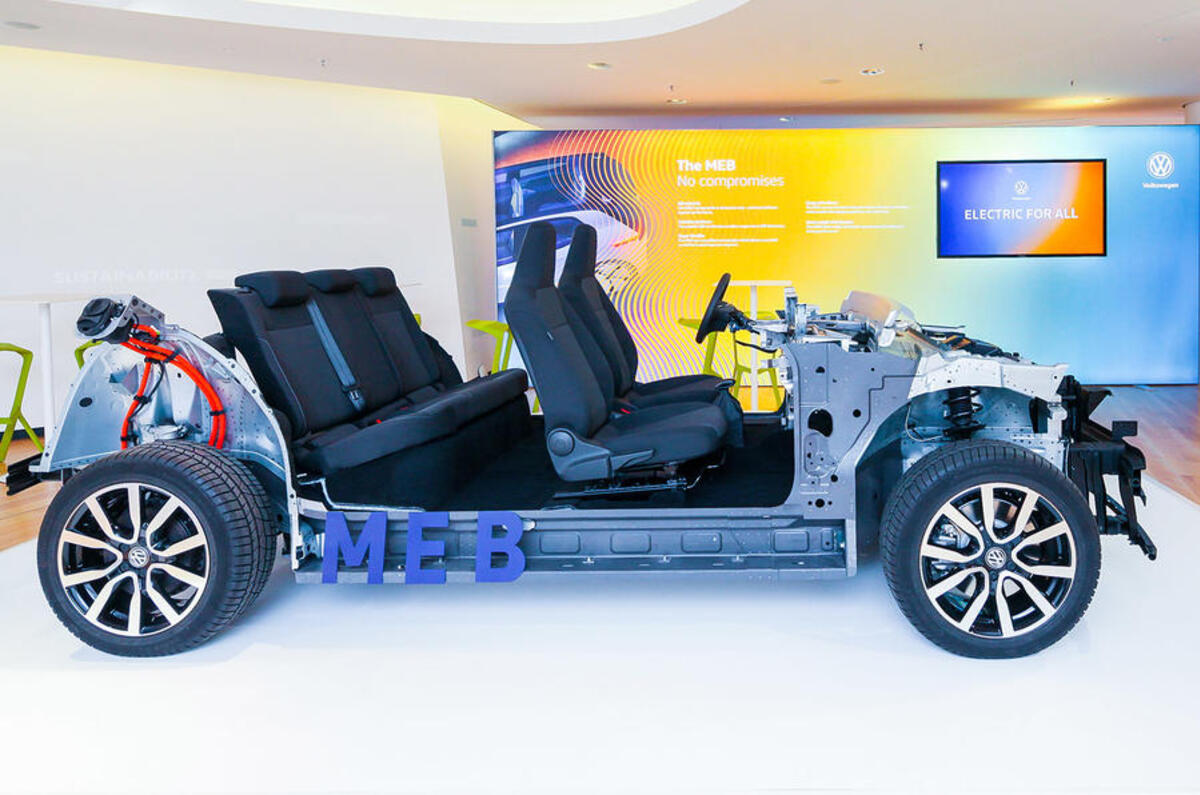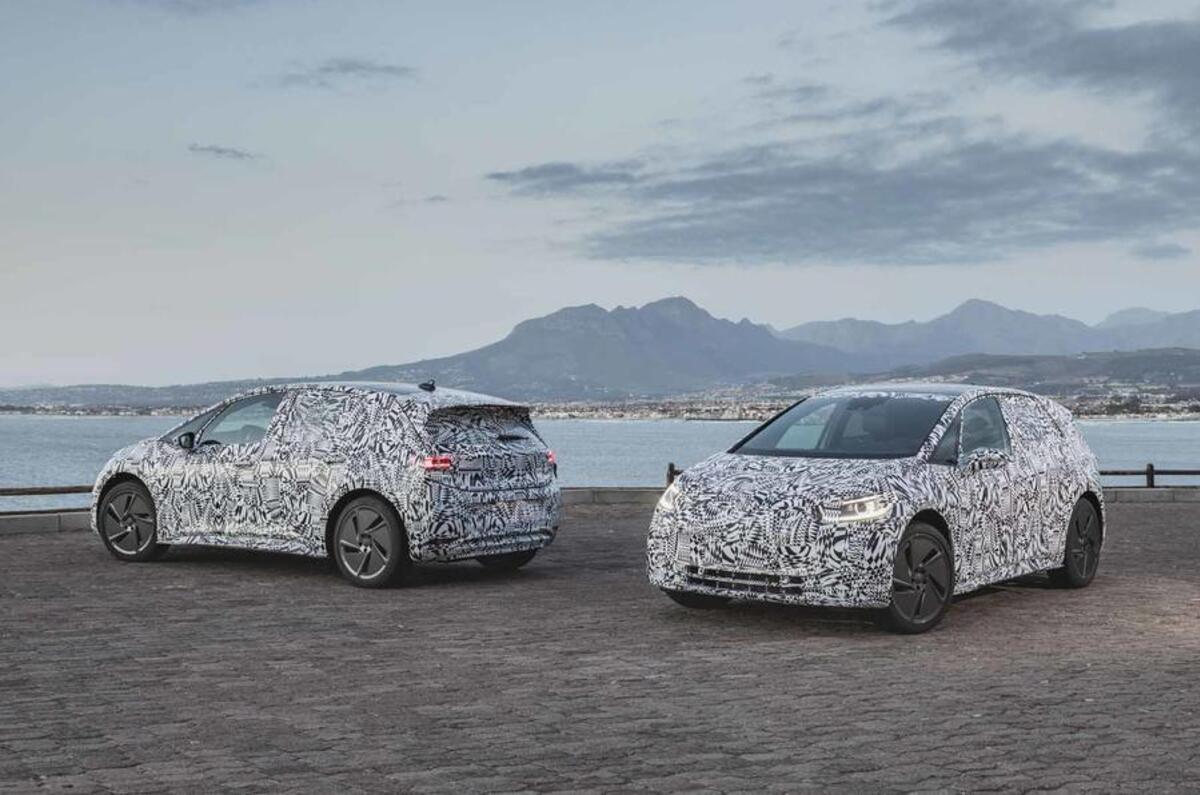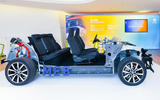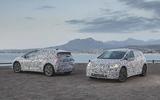Volkswagen’s strategy boss says the firm is prepared to offer its new MEB electric car architecture to other manufacturers – and is in talks with several major rivals.
The Volkswagen Group has invested heavily in developing the versatile pure-electric MEB platform, which will first be used on the production version of the ID hatch concept later this year. It will then be quickly rolled out across the group’s brands on a wide range of EVs.
Volkswagen recently agreed a wide-ranging alliance with Ford that could lead to the Blue Oval producing electric cars built on the MEB platform and Michel Jost, VW’s strategy chief, says the firm is evaluating more tie-ups.
In an interview with the Tagesspiegel newspaper, Jost said of the MEB platform: “I think we are industry forerunners in terms of cost and scalability. Therefore, we want to offer access to MEB, by making it available to the entire industry. This represents a paradigm shift to us.”
Jost added that he was in “advanced” talks with competitors, including several who were “in the volume segment”.
The Volkswagen Group is aiming to offer more than 50 electric cars – most of which will be built on MEB – by 2023. In the interview, Jost also confirmed that the firm is aiming to offer a T-Roc-sized electric model for less than £17,500 by 2024.
Read more
VW's MEB electric car platform: full details revealed
Volkswagen electric buggy revealed in new images
Volkswagen ID hatch prototype hits the road
Volkswagen CEO: we will launch one electric vehicle per month from 2022











Join the debate
Add your comment
With other automakers...
...working from the same tool set (and as already said, the VW Group is not giving it's cow's milk away for free), this will help the acceptance and progression of EV's move on more quickly. This will not keep other automakers from adapting and building upon VW's hardware for there own use. The individual, though, I believe such a move helps the most are both the smaller and start ev companies. Having universal building blocks, also allows for more attention to be focused on a "refueling network" that can be used by all makes, like that which supports the ICE vehicles the majority use today. Remember this too: Tesla open sourced their technology a few years ago. While the VW Group has not necessarily done the same thing, the more that participate in the game, the lower the start up costs of everyone playing!
VAG-Random numbers
50 electric models within 60 months, that's one every 5 weeks. Is that figure using the same computer that calculates their emission figures?
xxxx wrote:
Quite, and I'm calling cow dung on the 't-roc sized EV for £17.5k', by 2024 or ever. A base petrol T-Roc costs £18.2k now!
Bob Cat Brian wrote:
Bob Cat Brian wrote:
If you add the successful licensing of VW ID tech to other makers (just because they are willing to share, in no way means they get it for free), to the ever newer tech (solid state power, etc) economies of scale solutions, then to steal a march on those makers who lack both these attributes, it does look as if VW are not on the way to a massive fail, as you are suggesting. There have been a decent number of informed articles, showing that increasing volumes using advanced tech that costs less to produce, will result in lower cost EV's, than are currently ('scuse the pun) available. Also worth noting that the c£17.5K will be for the base model, which if ICE cars are an example, will be avoided by most buyers, who will in turn head for the expanded personalisation options list, so perhaps as at present, the c£17.5K car invoices out at an average of c£19.5-20K.
Bob Cat Brian wrote:
Sorry, in addition, the article quotes"The Volkswagen group...,", so as at present, with the VW, Skoda and SEAT brands each offering their own versions of eg UP/Citigo/Mii, perfectly possible to get to that number of individual models in the timescale mentioned.
Generous.....?
Why would you be open to sharing Tech with rival Car makers?
Peter Cavellini wrote:
I asked exactly the same question. I can only think it keeps costs down if more manufacturers are developing tech together. It also helps to close the gap to Tesla who VW seem to admire. The collaboration with ford for commercial vehicles was also a big surprise, but again I think it comes down to development costs. If VW had never been caught out with dieselgate then I suspect they would still have kept their EV technology very close to their chests.